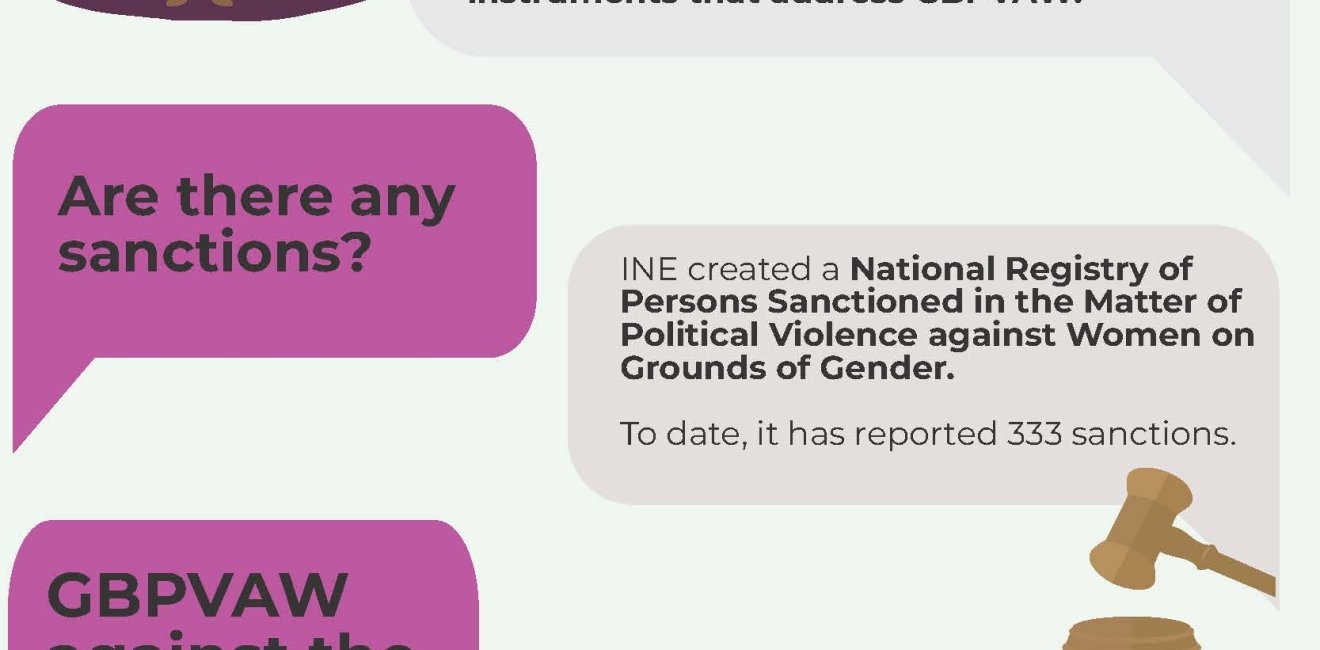Political Violence in Mexico's 2024 Elections: Gender-Based Political Violence Against Women
This is the third in a series of three articles on political violence in Mexico's 2024 elections written by María Calderón.
This is the third in a series of three articles on political violence in Mexico's 2024 elections written by María Calderón.

Over the last twenty years, the world has witnessed significant shifts towards greater gender equality in politics, which in turn has had positive implications for democracy and society at large.
Mexico has witnessed a systematic incorporation of gender perspective, equality, and parity in public life, signifying a transformation of women's ability to participate in the country's future. The prime example is the National Electoral Institute (INE) mandate, later ratified by the Electoral Tribunal (TEPJF), for political parties to guarantee gender parity in all upcoming gubernatorial elections of 2024: Chiapas, Guanajuato, Jalisco, Morelos, Puebla, Tabasco, Veracruz, Yucatán, and Mexico City.
Unfortunately, as women's participation in politics rises, an increase in political violence that explicitly targets women has also occurred. The 2020-2021 electoral process was the most violent against Mexican women.
Mexico´s political system is awash with political violence that explicitly targets and affects women, obstructs social justice, and hinders democracy. The advances in female political participation have been met with resistance as men, territorial interest groups, and political elites seemingly feel threatened by increasing female power and respond with violent actions to uphold the traditional system of politics to deter women’s independent participation.
Gender-Based Political Violence Against Women (GBPVAW) encompasses behaviors that specifically target women because of their gender. When female politicians are attacked for their political views alone, this is not a case of GBPVAW but of political disagreement or another type of political violence. Examples include violence targeted at political campaigns or voting rights, restricting registration as a political candidate, digital violence, sexual violence, physical violence (beating, pushing, molestation, kidnapping, murder), as well as economic and psychological violence, such as harassment, verbal abuse, defamation, and threats against female politician´s and their families.
GBPVAW’s end goal is to pressure, hinder, punish, or deprive women of their right to participate in politics. This type of violence takes on additional significance as a form of gender role enforcement, where the coercer tries to dominate and control women, limit opportunities, and curtail their political rights. This type of violence can affect the whole exercise of politics and the decision-making of women in political positions. Political violence is not exclusive to female politicians since it can bedirected at candidates, voters, campaign staff, and activists during and after electoral campaigns.


The Mexico Institute seeks to improve understanding, communication, and cooperation between Mexico and the United States by promoting original research, encouraging public discussion, and proposing policy options for enhancing the bilateral relationship. A binational Advisory Board, chaired by Luis Téllez and Earl Anthony Wayne, oversees the work of the Mexico Institute. Read more




